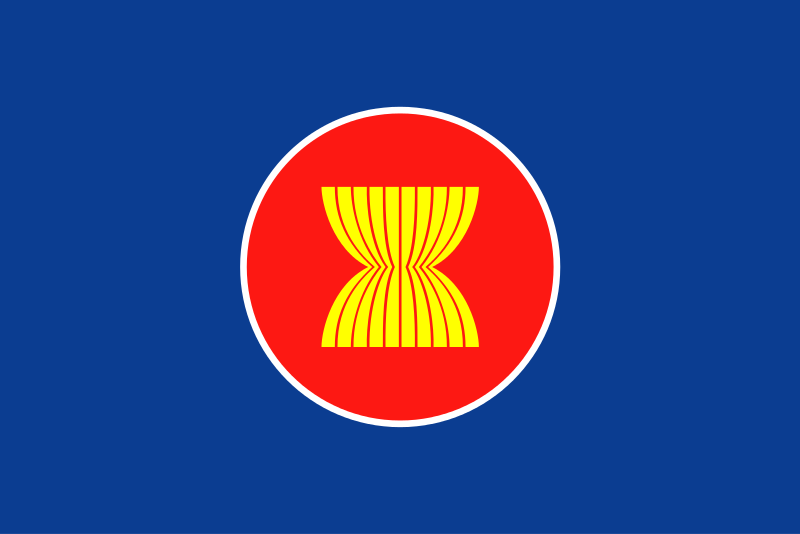
Developing a Regional Framework for Extractive Industries in Southeast Asia
Natural resource extraction drives many economies in Southeast Asia, and foreign direct investment (FDI) in the extractive sector is at historic highs.
In Indonesia, for example, based on data from BKPM (Coordinating Board of Foreign Investment), the mining sector accounted for 20.7 percent of total FDI in the third quarter of 2013, while in Malaysia, in 2011, the mining and quarrying sector accounted for 22.2 percent of total investments. And in Laos, from 1989 to 2012, 27 percent of FDI was directed towards the mining sector.

Revenues from natural resources also contribute significantly to the national budget in several countries in the region. In Brunei, oil and gas revenues account for more than 85 percent of the national budget. In Timor-Leste, resource revenues fund more than 90 percent. Even large countries like Indonesia and Malaysia receive more than 30 percent of their annual budget from oil and gas revenues.
In spite of the wealth that extraction has brought, conflict, corruption, human rights violations, and environmental degradation are commonplace across the region, and a number of these problems can be attributed to mismanagement and poor governance in the extractive sector. It is critical that governance in the extractive sector improves in order for natural resources to help the region grow sustainably while providing for poor communities.
Building on this spirit, and as part of the USAID-funded IKAT-US project (Inisiatif Kemitraan Asia Tenggara – United States), the Revenue Watch Institute, the Institute for Essential Services Reform (IESR) and other regional partners from Cambodia, Indonesia, Malaysia, Myanmar, the Philippines, Timor-Leste, and Vietnam have been working together to develop a regional framework to better govern extractive industries in the region. The goal is to create a region-wide civil society proposal to the Association of Southeast Asia Nations (ASEAN). The framework will be developed further in March 2014 during the ASEAN People’s Forum in Myanmar, a mechanism established for civil society to contribute to development.
On 16 and 17 December, 2013, civil society partners from the region traveled to Jakarta to develop the regional framework on extractive industries. IESR took the leading role in providing the first draft, obtaining inputs from other civil society partners. The discussions were focused on principles of better management of extractive industries, taking into account elements of good governance, respect for human rights, environmental protection, and better economic policies towards the management of extractive sector.
In addition to broader discussions, IESR Director Fabby Tumiwa presented a draft regional framework during a multi-stakeholder panel discussion moderated by Revenue Watch. Tumiwa’s presentation focused on the existing ASEAN Charter and ministerial statements around good governance of extractive industries to ensure that framework language is consistent with ASEAN vision and values.
The basic principles proposed in the framework are as follows:
- Natural resources should benefit the people in the region and contribute toward just and equitable development.
- Extractive industries should ensure meaningful participation of local communities in the decision chain.
- Licensing and contracts should be fair.
- Spending of revenues coming from extractive industries should be transparent and benefit the public.
Both days of discussions generated significant response from attendees, reflecting the strong participation of influential civil society figures from across the region.
Noke Kiroyan, an Indonesian expert on mining and currently vice chairman of the Indonesian Chamber of Commerce and Industry, suggested that before extraction of natural resources commenced a free prior and informed consent (FPIC) process should be in place. FPIC helps to secure a social license to operate and ensure that local communities are fully consulted and consent to extraction.
Although there are good international standards for managing the extractive sector in theory, a number of problems continue to arise in practice: many mining companies operating in Southeast Asia still fail to follow global standards. In response, speakers and participants at the meeting agreed that government should take more a more active role in enforcement of mining regulations; adopt good international practices in national laws; and punish companies that flout the rules. This can incentivize the rise of responsible mining in the region.
Professor Emil Salim, currently the Chairman of the Advisory Council to the Indonesian president, highlighted the fact that most ASEAN countries’ economic growth is fueled by extraction of natural resources. He called upon ASEAN countries to start developing related downstream operations, such as smelters and refineries, to gain more value added from their natural resources. Professor Salim stressed that the governments in the region have a very crucial challenge and that taking decisions to change this market structure require courage.
Indonesia is currently working towards these goals. Beginning this month, new laws prohibit mining companies operating in Indonesia from exporting raw materials. Raw materials from minerals and coal must be processed in the country to better capture more of their value and create more local employment, all while precipitating technology transfer and increasing local knowledge and skills.
Prof. Salim also advocated for the adoption and effective implementation of the Extractive Industries Transparency Initiative (EITI) by governments in the region, concluding: “Transparency is the key concept here to ensure that citizens are well informed about the decisions made by their governments and the industry so that they can actively participate in public debates to ensure sustainability of resource use and intergenerational justice.”
Morentalisa Hutapea is an IESR program officer. Emanuel Bria is RWI’s senior regional associate for Asia-Pacific.
